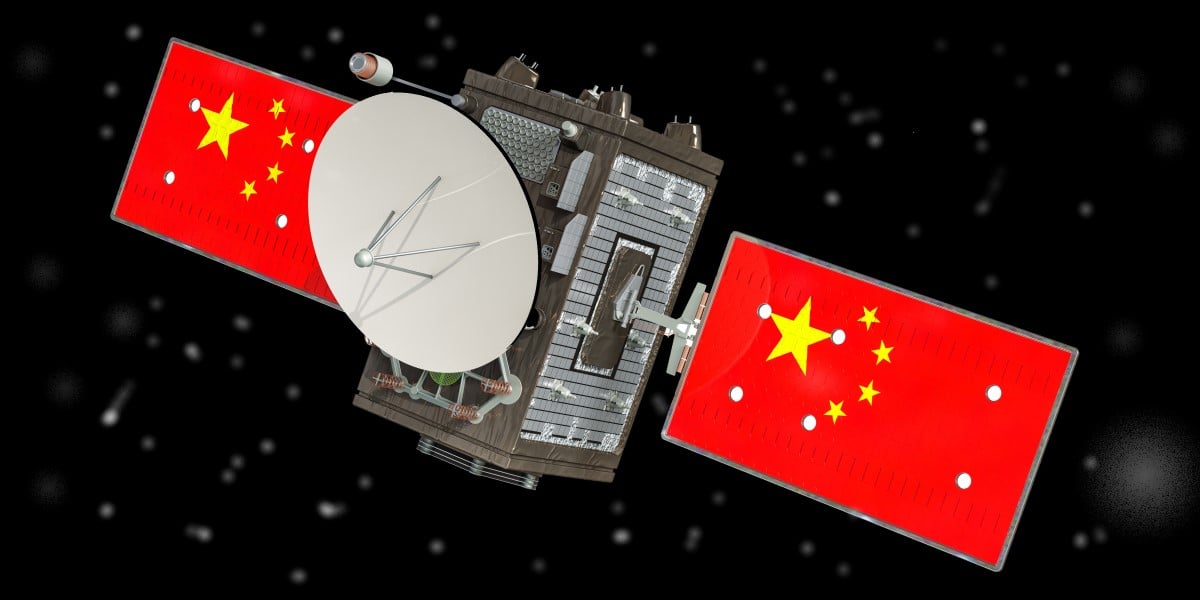China Calls For Realtime Censorship Of Satellite Broadband

Beijing has published its proposed regulations for satellite broadband, including a requirement that operators conduct censorship in real time.
In its latest draft rules, the Cyberspace Administration of China proposes any organization or individual using terminal equipment with direct connection to satellite services is not allowed to "produce, copy, publish, or disseminate content prohibited by laws and administrative regulations, such as content that incites subversion of state power, overthrows the socialist system, endangers national security and interests, damages the national image, incites secession of the country, undermines national unity and social stability, promotes terrorism, extremism, ethnic hatred, ethnic discrimination, violence, pornography, and false information."
It clarifies that terminal equipment includes civilian handheld, portable, and fixed terminals, as well as terminals installed on aircraft, ships, and vehicles – essentially any device that enables users to access satellite communication systems for voice calls, text messaging, and data exchange.
The document states that providers must align their operations with national security and network security requirements, and prevent illegal activities.
This includes complying with China's cyber security, data security, and personal information protection laws – plus potentially being responsible for users' activities.
"If a terminal equipment direct satellite service provider finds that a user has published or transmitted information prohibited by laws and regulations, it shall immediately stop the transmission, take measures such as elimination in accordance with the law, preserve relevant records, and report to the relevant competent authorities," stipulates the CAC.
- Chinese broadband satellites may be Beijing's flying spying censors, think tank warns
- China claims Starlink signals can reveal stealth aircraft – and what that really means
- Would you rather buy space broadband from a billionaire, or Communist China?
- Amazon's Project Kuiper slips to end of 2024 for first full-scale launch
The draft rules further include articles that would make tracking of providers and users easier. This includes requiring providers to:
- Obtain licenses and approvals, whether telco, radio frequency related or otherwise;
- Collect real identity information from those using its services, as China already requires of telcos;
- Integrate monitoring and supervision into their platforms to allow Beijing's oversight;
- Locate ground facilities – such as gateway stations and Earth stations – and user data on Chinese soil. Any data that does need to go overseas must be processed through a gateway approved by the telecommunications regulatory department of the State Council.
The rules even go so far as to require anyone who uses satellite broadband to publish news – or distribute video and audio content – to obtain a license.
The rules mean that non-Chinese satellite broadband operators will need Beijing's approval to offer their services in the Middle Kingdom.
China is an enormous market, but The Register can't imagine that space broadband players like SpaceX or Amazon will be keen to sign up for Beijing's rules – especially as Elon Musk's professed fervent belief in free speech is at odds with China's desire to monitor content and require takedowns. Then again, maybe it's not as fervent as his desire to sell lots of Teslas in China.
The CAC includes other items that provide an overall industry vision – such as encouraging the construction of satellite communication systems and making them compatible and interoperable with network architectures. It also states it would like to cultivate technical talent in the industry and actively participate in the formulation of relevant international rules and standards.
A deadline for feedback was set for October 27, 2024.
China launched its first space broadband satellites into orbit in August. In all, 108 satellites are slated to go up this year to start the Qianfan constellation, followed by 540 more in 2025. China aims to have 15,000 internet-slinging satellites in low Earth orbit by 2030.
It has been suggested that the constellation system will help run and export the nation's content censorship system, known as the Great Firewall – a hypothesis lent significant credence by these draft rules. ®
From Chip War To Cloud War: The Next Frontier In Global Tech Competition
The global chip war, characterized by intense competition among nations and corporations for supremacy in semiconductor ... Read more
The High Stakes Of Tech Regulation: Security Risks And Market Dynamics
The influence of tech giants in the global economy continues to grow, raising crucial questions about how to balance sec... Read more
The Tyranny Of Instagram Interiors: Why It's Time To Break Free From Algorithm-Driven Aesthetics
Instagram has become a dominant force in shaping interior design trends, offering a seemingly endless stream of inspirat... Read more
The Data Crunch In AI: Strategies For Sustainability
Exploring solutions to the imminent exhaustion of internet data for AI training.As the artificial intelligence (AI) indu... Read more
Google Abandons Four-Year Effort To Remove Cookies From Chrome Browser
After four years of dedicated effort, Google has decided to abandon its plan to remove third-party cookies from its Chro... Read more
LinkedIn Embraces AI And Gamification To Drive User Engagement And Revenue
In an effort to tackle slowing revenue growth and enhance user engagement, LinkedIn is turning to artificial intelligenc... Read more

